African music is spearheading black excellence triumphantly.
We are at a time where music has become a unifying language of some sort, and intercontinental music collaborations are easier to achieve and execute with an established audience ready for consumption. With this development, it is fulfilling to witness a surge in global Afrobeats recognition for the unique music genre it embodies and more cultures adopting African sounds and rhythms into their music and lifestyle. With genres such as Afrobeats, Afro-pop, and Afro-fusion, African music has, over the years, launched a massive spotlight on the African continent and the uniqueness of African music.
For Centuries, Africans have been known to be a people of a distinct culture, deep-rooted in arts and entertainment. Africa’s musical tradition has always been integral to the culture and has served as a way for its people to express a wide range of emotions. Like every other culture, African music is unique and serves as more than a means for storytelling. In several parts of Africa, music functions as a form of worship, gyration, celebration, grievance, and prophecies, among others.
Music on the continent is diverse and unique because it is so vast. Many regions and nations of the continent have distinct musical traditions. Africa is home to many different styles of music, including Jùjú, Fuji, Highlife, Makossa, Kizomba, Afrobeat, Benga, Genge, Kwaito, Amapiano, among others that make the continent a den of genre-bending communities. African music is highly rhythmic, and the complex rhythm patterns often incorporate one rhythm played against another to create a polyrhythmic sound that soothes the ear and easily inspires dancing.

As music evolved globally, several factors also influenced the traditional music that emanated from Africa. Language, the environment, diverse cultures, politics, and population movements all influenced the music in Africa. Each African community evolved in a different area of the continent, and as such, the music artists from those areas embraced collaborations and pushed the music beyond borders.
It is worthy to note that a significant development in African music was the refinement of traditional music and its entry into the mainstream. In the contemporary era, most genres of African popular music are a fusion of elements in western popular music.
In Europe and America, African traditions have influenced popular music genres such as blues, jazz, and rumba. Other music genres like rock, soul, and R’n’B incorporate many elements from the previously mentioned genres. Similarly, African popular music has adopted elements, particularly the musical instruments and recording studio techniques of western music.
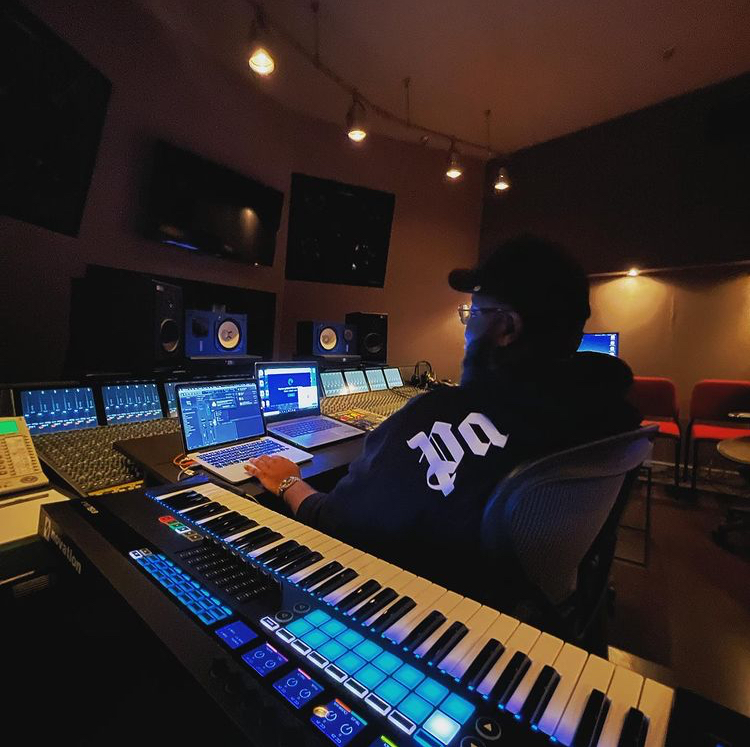
This adaption and fusion of western elements into African music amplified the sounds out of Africa in such a way that Artistes from several parts of Africa now export music to other parts of the world. The creativity in Africa has extensively developed such that genres such as Afrobeats, Highlife, and Kwaito have borne popular genres and subgenres like Afro-fusion, Emo-Afrobeats, and Amapiano to name a few. These developments also gave rise to more collaborations between music artists and producers, thereby creating a renewed energy and ambiance for new sounds.
These African music genres, Afrobeats, Afro-fusion, Amapiano, Congolese-zouk, and Afro-street have catapulted Africa to the global music scene. The past two decades have also seen a broad new crop of artists with promising music careers through the development in technology and accessibility to the internet.
Music consumption moved from Hard copy CDs to digital streaming platforms, which has given distribution platforms like Apple Music, Spotify, and Audiomack the insight to identify markets in Africa and grow their listener base exponentially. These platforms have also created playlists to discover and showcase top-performing and fast-rising acts from across the continent to export the music and talent to the international music community.
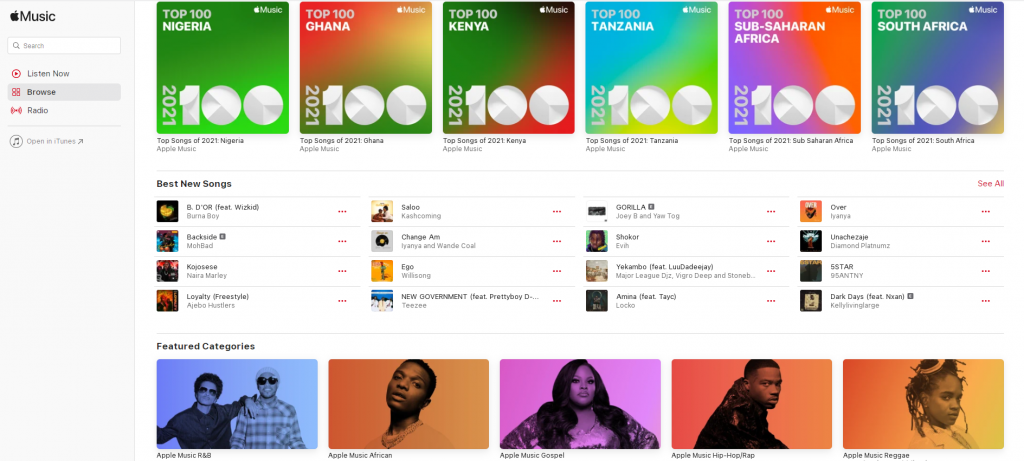
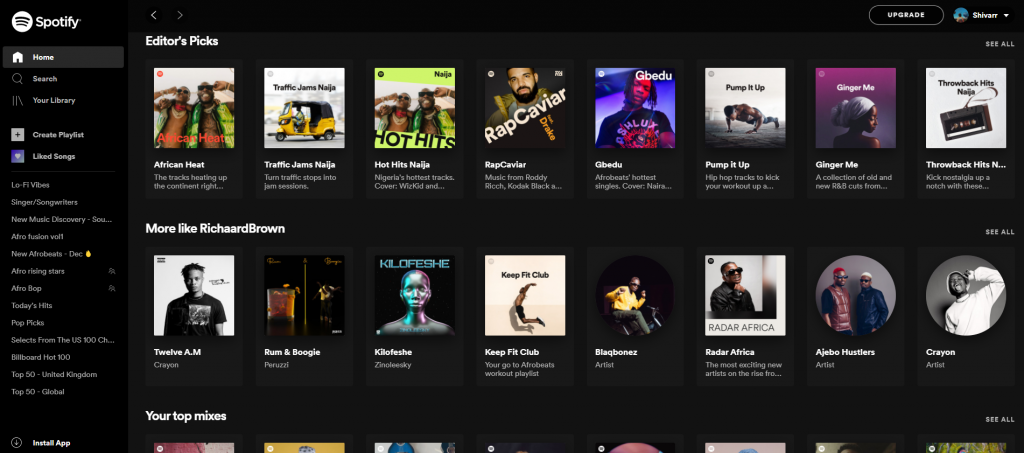
The African music industry has had a great run. In the last decade, the industry has experienced rapid growth from the emergence of independent music agencies and international record labels like Sony and Universal Music Group opening regional offices in Nigeria, Ghana, South Africa, Senegal, and Ivory Coast. With these partnerships, an all-African music catalog is made available and presents the opportunity to showcase African music to the international market.
With these favorable partnerships, the music industry also benefited from the immense effort of A&Rs that scout and discover new talents and develop them into marketable products to be exported on a global scale. Music acts Rema, Arya Starr, and a lot of other talented youngins have benefited from this innovation. Music is now interwoven with social media, and African artists are breaking frontiers and reaching new audiences through Instagram and TikTok.
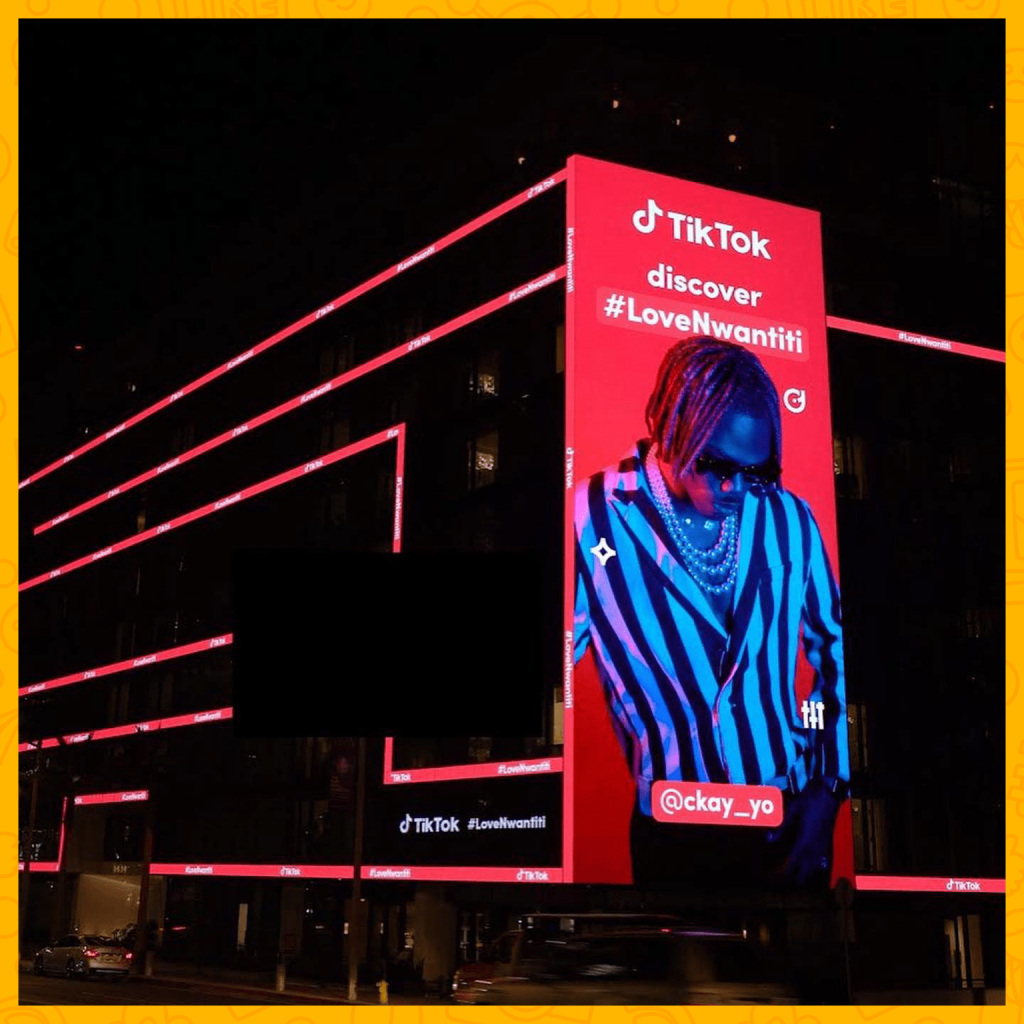
The strategic partnerships between International record companies and independent labels have made it easier to organize PR and marketing campaigns for African superstars Wizkid, Davido, Burna Boy, Tiwa Savage, and others to market their music and reel in fans from across the world. It has also helped brand visibility to the extent that they can confidently sell out major concert stages like the o2 arena.
In 2021, Burna Boy won a Grammy for his album Twice As Tall, and Wizkid and Tems won Best collaboration for their hit song Essence at the Soul train awards. Ckay receives his first international award and is a nominee for the BRIT 2022 awards. Davido signs deal with Puma as a global ambassador, Nasty C signs deal with Def Jam, and Wizkid sold out the o2 arena in 2 minutes and had a sold-out concert for three nights in a row. These are just a few of the international accolades by African acts in 2021.
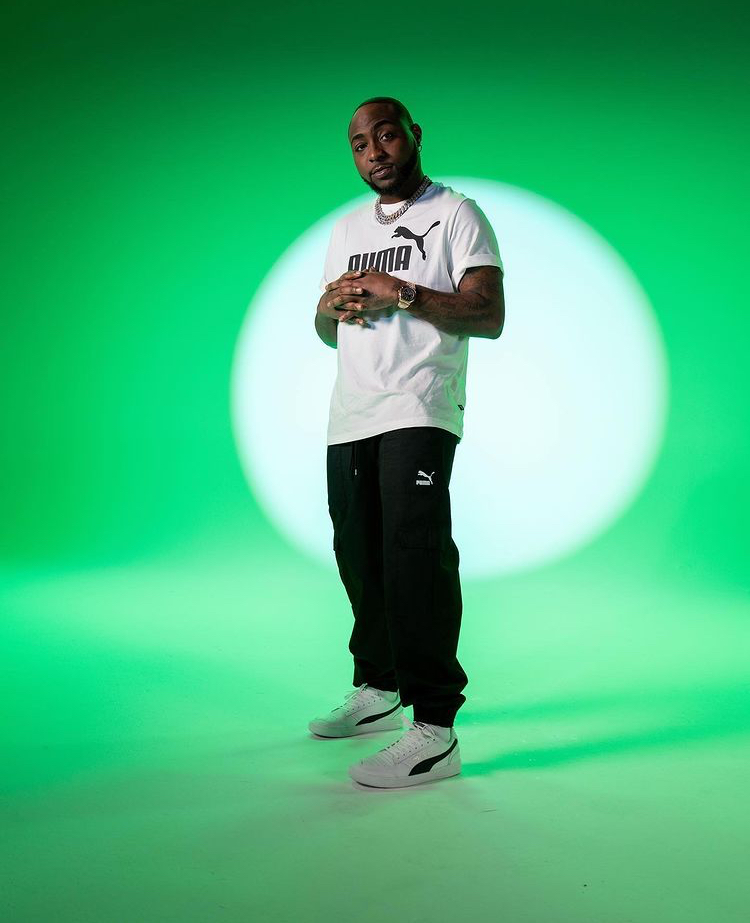
It is thrilling and fulfilling to see the upward trend in the Afrobeats to the world campaign by Nigerian superstars Wizkid, Davido, Burna Boy, Tiwa Savage, and other young African acts. However, we must acknowledge and appreciate the contribution of music legends such as Fela Anikulapo Kuti, Miriam Makeba, Angelique Kidjo, Brenda Fassie, Youssou N’dour, King Sunny Ade, Lucky Dube, and a host of others.
Every single win by an African music act paves the way for other creatives from music, dance, fashion, film, and media to share their creativity with the world and get their deserved accolade. The influence of music on other aspects of entertainment is evident in sports, film, and other fields, providing a rapidly growing ecosystem for African acts to thrive and for black excellence to flourish.
2 Comments
Leave a Reply
You must be logged in to post a comment.
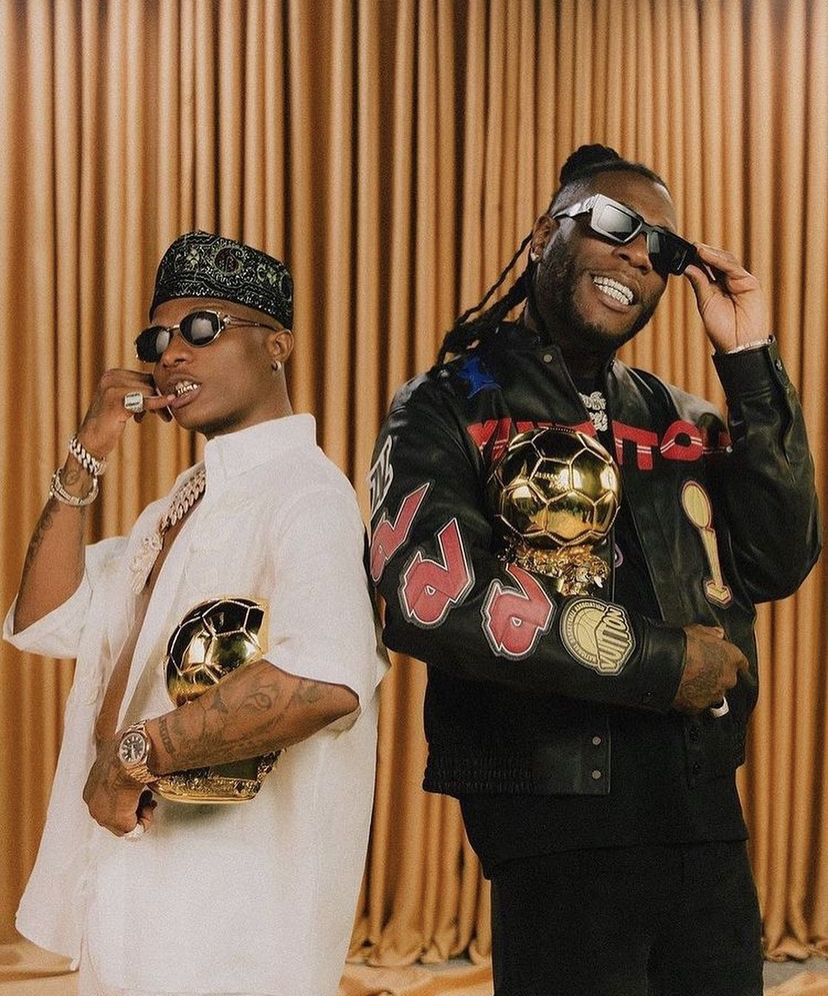
[…] each carefully curated track he displays his unmistakable versatility, riding the exhilarating amapiano drum beat in “Kiss and Tell” with ease and smoothly blending his sweet vocals with the […]
[…] every time. SZA and Ariana Grande too. In 2018, I listened to Niniola and what she did with amapiano and house music was breathtaking. She gave me the encouragement I needed to get into […]